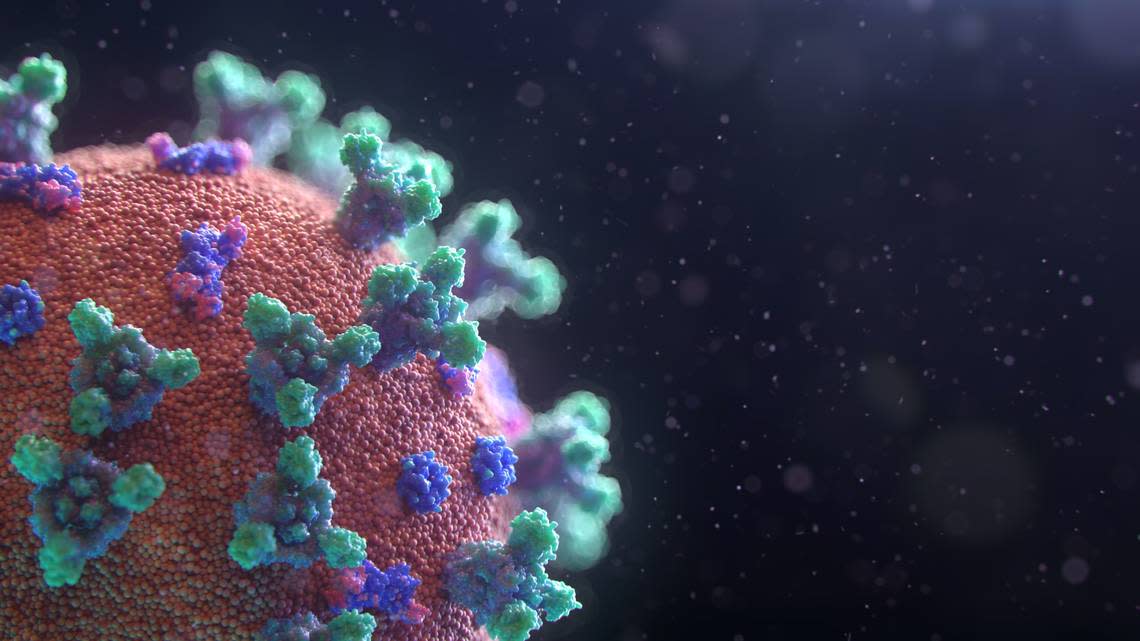She couldn’t recognize her dad after COVID, study says. ‘Something was off with faces’

Imagine the familiar face of a family member or friend is suddenly unrecognizable the next time you see them.
That’s what happened to a 28-year-old woman, who works as a part-time portrait artist drawing faces, after her COVID-19 infection, according to a new study published in the journal Cortex.
A few months after getting COVID-19, the woman, identified as Annie, couldn’t recognize her father’s face when she met with family in June 2020 for the first time since getting sick, the study involving Dartmouth College researchers says.
“My dad’s voice came out of a stranger’s face,” Annie explained to the researchers.
Annie’s new struggle to recognize faces — a neurological condition known as prosopagnosia, or “face blindness” — emerged seven weeks after her COVID-19 infection began in March 2020, according to the study.
During this time, some of her COVID-19 symptoms returned, she felt disoriented and told researchers that “something was off with faces.”
Annie also began having trouble navigating familiar surroundings after catching COVID-19, the study notes. This includes her troubles navigating the sections of grocery store she frequents or finding her car in a parking lot, the study notes.
COVID-19 likely caused Annie’s prosopagnosia and difficulties with navigation, according to the study.
It’s been established that the virus can lead to long COVID, which refers to a range of lingering health effects weeks after symptoms subside. Long COVID symptoms can affect the heart, neurological function, the digestive system and more, according to the Centers for Disease Control and Prevention.
Now, the study’s authors say Annie’s case is the first report of prosopagnosia after COVID-19 symptoms.
What typically causes prosopagnosia?
Prosopagnosia, or face blindness, can occur after a stroke or traumatic brain injury, or result from a neurodegenerative disease, according to the National Institute of Neurological Disorders and Strokes.
Some people can be born with the condition, the organization says.
A separate study by researchers at Harvard Medical School and the VA Boston Healthcare System found more than 10 million people living in the U.S. may be experiencing prosopagnosia. The work was published in February in Cortex.
“The combination of prosopagnosia and navigational deficits that Annie had is something that caught our attention because the two deficits often go hand in hand after somebody either has had brain damage or developmental deficits,” Brad Duchaine, senior author of the current study and a professor of psychological and brain sciences, said in a news release.
More on Annie’s face blindness
Not only was Annie unable to recognize her father’s face, but she also couldn’t recognize other family members, according to the release on the study.
Her first meet-up with her family after her COVID-19 infection took place at a restaurant, she told researchers.
There, she said she walked directly past her family a few times without realizing it was them, prompting her father to call for her.
Visually, her father was indistinguishable from her uncle, according to the study. Now, voices help her identify people when their faces don’t offer clues.
Her face blindness has also impacted her job as a portrait artist, the study noted.
Previously, Annie told researchers that she could draw a person’s face while looking at a photo for reference every 15-30 minutes.
“She now depends on photographs while drawing,” researchers wrote.
The researchers had Annie take part in a series of tests to evaluate if she was experiencing additional perceptual or cognitive struggles, the release said.
In one test, Annie had to identify 60 different celebrities while being shown their faces, according to the study. Then, she was given a list of these celebrities’ names, without their faces, and told researchers whether she knew them.
Among 48 celebrities who she knew, she identified 29% of their faces in comparison to most people who can identify 84% of celebrities they are familiar with, according to the research.
In other tests, such as face detection, face identity perception, scene recognition, object recognition and non-visual memory, Annie scored “normally,” the study said. Overall, she performed poorly on the face recognition tests.
“It’s been known that there are broad cognitive problems that can be caused by COVID-19, but here we’re seeing severe and highly selective problems in Annie,” Duchaine said, “That suggests there might be a lot of other people who have quite severe and selective deficits following COVID.”
Survey of people experiencing long COVID
Annie’s case led researchers to wonder if other people were dealing with issues involving perception, recognition and navigation after COVID-19.
They surveyed 54 people who reported experiencing long COVID symptoms lasting at least 12 weeks and 32 people who reported they weren’t experiencing lasting symptoms following their COVID-19 infection, according to the research.
Of the long COVID group, most reported issues with visual recognition and their ability to navigate spaces, the study found.
The participants’ decline in cognitive and perceptual abilities wasn’t surprising, according to Marie-Luise Kieseler, lead study author and a graduate student in Dartmouth College’s department of psychological and brain sciences.
“What was really fascinating was how many respondents reported deficits,” Kieseler said in a statement.
Based on the study and Annie’s case report, the authors concluded that COVID-19 can cause “severe selective impairments” such as face blindness.
They call for further research to gain a better understanding of how COVID-19 may cause selective visual deficits.
The study was published as a pre-proof, meaning it’s been peer-reviewed but may go through additional changes such as copy editing and the addition of more supplemental material.
Is it COVID or just seasonal allergies? How to tell the difference as spring nears
Parents lying about kids having COVID? Some did to exercise ‘freedom,’ study says
Cardiovascular deaths rose in first years of COVID, study says. Experts have ideas why

